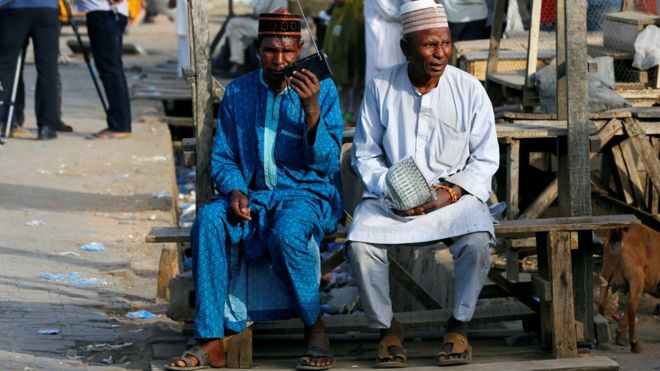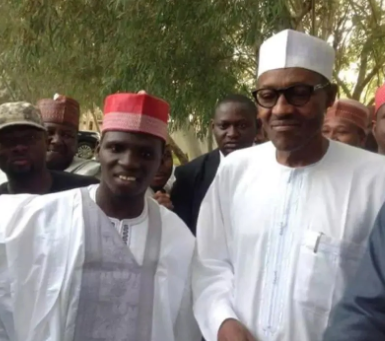As the dust from the 2019 presidential elections begins to settle, we now have the chance to take a close look at some of the more understated factors that helped President Muhammadu Buhari win a second term.
After placing a big “unlooking” sign over allegations of election irregularities and voter suppression, most analysts would agree that Buhari won, in part, because his supporters were significantly more excited about his candidacy. Simply put: President Buhari energized his northern core in ways that Atiku wasn’t able to do with his own audience.
A major source of the energy surrounding Next Level 2019 came from the Arewa music scene. The artist community in the north was almost unanimously in support of Buhari’s candidacy; they lent their considerable voices to the movement.
Much has been made of the role that the long-lived, northern tradition of radio-listening played in deciding the elections. Some of the more lasting images from these elections are of groups of men huddled up, holding transistor radios close to their ears, with the antennas of the radios pulled higher than their caps and their attention undividedly fixated on what they are listening to.

But, what were they actually listening to?
Two things, it seems. In Hausa-speaking states, the Buhari campaign effectively used local radio as a tool to reach tens of millions of people who are traditionally already politically-aware. In addition, radio stations offered millions of naira’s worth of promotion by keeping popular songs from artists who are unabashedly pro-Buhari in heavy rotation.
One artist in particular has been so influential to Buhari’s popularity in the north that he was made the National Director of Music for the Buhari 2019 Presidential Support Committee. His name is Rarara.
Rarara hails from the same state as the C-in-C but he has made Kano his second home. The singer initially gained notoriety for making 20-30 minute long songs praising local politicians he supports and ridiculing those he didn’t.
His political commentary has made Rarara a man who’s loved as well as loathed. Just this week, there were reports that the singer escaped an assassination attempt at his Kano studio, although he denies that the incident ever took place.
Last election cycle, Rarara memorably released “Masu Gudu Sugu Du”, a song that warned looters and corrupt politicians to flee because Buhari was going to be in power. The song is just one out of the numerous songs Rarara has circulated over the years that praise the president effusively.
In the run up to these elections, Rarara released another one: “Baba Buhari Dodar”. And within weeks, the record gained omnipresence across the Arewa region. Rarara opens “Baba Buhari Dodar” with a very specific instruction to fellow Buhari supporters to spread the word and multiply: “1 to tell 10, 10 to tell others”. The success of that song brought renewed attention to the singer, as well as the subject he sings so spiritedly about.
Rarara followed up “Baba Buhari Dodar” with a number of other pro-Buhari singles like “Mun Shiga Next Level” ft. Baban Chinedu and “Su Dan Lukuti Sun Kife”. Each song achieved varying levels of success. A number of other Arewa artists like Hauwa Yar Fulani and Morell also contributed to the Buhari praise-singing subgenre. There was, however, one popular defector. Popular actor and singer Adam A. Zango was initially on the Buhari train but would make a spectacular, but belated, U-turn to Atiku.
Unsurprisingly, outside of the north, President Buhari struggled to find anywhere near the same level of support from other artist communities. Fuji legend K1 De Ultimate is one of the few who identified with Buhari, releasing a controversial song for the Next Level campaign.
The president would find support even harder to come by in the younger demographic. In fact, rappers like Falz and Show Dem Camp used their most recent projects to take light jabs at the president. The Kutis were, however, far less subtle. The family still holds a grudge against a president who imprisoned their father under questionable circumstances when he was a military ruler. As a matter of fact, Fela went on to name-check Buhari in the less-than-complimentary song “Beasts of No Nation” (1989).
Most other Lagos-based artists just stayed away from national politics all-together. Small Doctor was one of the few outliers. But even his endorsement was after initial confusion about his allegiance. A few months prior, Small Doctor was performing at an APC Convention. While performing, he tweaked a line from his hit song “Penalty”, “Buhari, ye ma sun (Buhari, stop sleeping)”, that most people online, even his fellow artists, took the worst interpretation of.
One of Atiku’s shortcomings as a candidate was, therefore, his inability to capitalize on Buhari’s glaring unpopularity within Afropop culture. Atiku positioned himself as the youth candidate. But without a popular song in constant rotation and with the only artist of stature endorsing him being Davido, Atiku wasn’t able to connect with the youth at one of their main points of interest.
There are numerous factors that help candidates win elections but Nigeria has a documented history of election jingles playing a significant role. This is particularly true in campaigns where election songs actually cross over semi-organically to become bonafide hit songs.
President Buhari, therefore, didn’t need to reinvent the wheel; his campaign relied on a tried and tested formula to win the 2019 presidential election.


